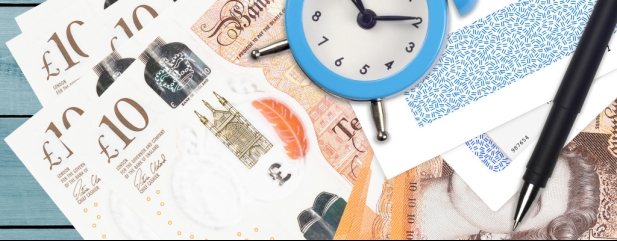Archived article
Please note that tax, investment, pension and ISA rules can change and the information and any views contained in this article may now be inaccurate.
Is pension tax relief paid automatically or do I have to make a claim?

I’m a higher-rate taxpayer and contribute to both my workplace ‘net pay’ pension scheme and a SIPP. Do I need to claim my tax relief or will it be paid automatically?
Anonymous
Tom Selby, AJ Bell Head of Retirement Policy, says:
Millions of savers contribute billions of pounds each year to pensions, with one of the main incentives being that those contributions receive tax relief at your marginal rate.
People often mistakenly assume they will receive all their pension tax relief automatically from HMRC. However, whether you need to make a claim to HMRC to receive the tax relief you are owed will depend on several factors including your income, the type of pension scheme you contribute to and how you contribute.
HOW MUCH TAX RELIEF COULD HIGHER EARNERS CLAIM?
A higher-rate taxpayer who contributes £1,700 to a SIPP in the 2022/23 tax year would receive basic rate relief of 20% automatically.
As a result, a £1,700 personal contribution would automatically be boosted by £425 to £2,125 in their pension – but they would need to claim the extra 20% tax relief (£425) they are owed from the taxman. An additional-rate taxpayer, meanwhile, could claim 25% tax relief from HMRC on top of the 20% relief they receive automatically.
Higher-rate taxpayers who make larger pension contributions will have an even bigger incentive to fill out their tax return. For example, a higher-rate taxpayer making a £10,000 personal pension contribution would receive £2,500 basic-rate tax relief and be able to claim an extra £2,500 from the taxman. An additional-rate taxpayer who contributed £10,000 would be able to claim an extra £3,125 from HMRC.
DO ALL HIGHER EARNERS NEED TO RECLAIM PENSION TAX RELIEF?
If you are a higher or additional rate taxpayer and have sufficient annual allowance available for the tax year, you should be entitled to tax relief at your marginal rate. However, you will only have to make a claim to HMRC if you are making personal contributions to a ‘relief at source’ scheme. Personal pensions, such as SIPPs, usually pay tax relief in this way.
If you are contributing to a ‘net pay’ pension scheme, your contributions will be taken from your pre-tax salary, meaning income tax relief is usually paid automatically. This should also be the case if your contributions are paid through pensions salary sacrifice. These types of scheme are usually linked to your workplace.
Anyone in a net pay scheme shouldn’t need to make a claim, as you should already have received the tax relief you are due.
The exception to this is where someone contributes to a net pay scheme from earnings below the personal allowance of £12,570. In these circumstances tax relief will not be granted automatically, although the Government has pledged to address this so-called ‘net pay anomaly’ in the coming years.
HOW DOES HMRC PAY RECLAIMED PENSION TAX RELIEF?
Pension tax relief is not always paid directly into your pension. As discussed if you contribute to a ‘relief at source’ scheme, such as a SIPP, you will receive basic-rate (20%) tax relief automatically but will need to claim higher or additional-rate tax relief from HMRC.
Once your claim is processed, HMRC will usually adjust your tax code to pay your extra tax relief. If you don’t currently have earnings, you may simply be sent a cheque.
It is possible to backdate pension tax relief claims by up to four years. If you are making claims for tax relief you are owed from more than four years ago, it will be at HMRC’s discretion whether to accept your claim.
DO YOU HAVE A QUESTION ON RETIREMENT ISSUES?
Send an email to asktom@sharesmagazine.co.uk with the words ‘Retirement question’ in the subject line. We’ll do our best to respond in a future edition of Shares.
Please note, we only provide information and we do not provide financial advice. If you’re unsure please consult a suitably qualified financial adviser. We cannot comment on individual investment portfolios.
Important information:
These articles are provided by Shares magazine which is published by AJ Bell Media, a part of AJ Bell. Shares is not written by AJ Bell.
Shares is provided for your general information and use and is not a personal recommendation to invest. It is not intended to be relied upon by you in making or not making any investment decisions. The investments referred to in these articles will not be suitable for all investors. If in doubt please seek appropriate independent financial advice.
Investors acting on the information in these articles do so at their own risk and AJ Bell Media and its staff do not accept liability for losses suffered by investors as a result of their investment decisions.
Issue contents
Feature
Great Ideas
Investment Trusts
News
- Marks & Spencer builds on sparkling Christmas with news of 20 new stores to come
- Darktrace back to IPO price after slicing growth expectations
- UK stocks enjoy big gains as travel and retail lead the way
- Housebuilder warnings about a slowdown in activity does not bode well for suppliers
- Musicmagpie shares soar more than 300% from October lows

 magazine
magazine








